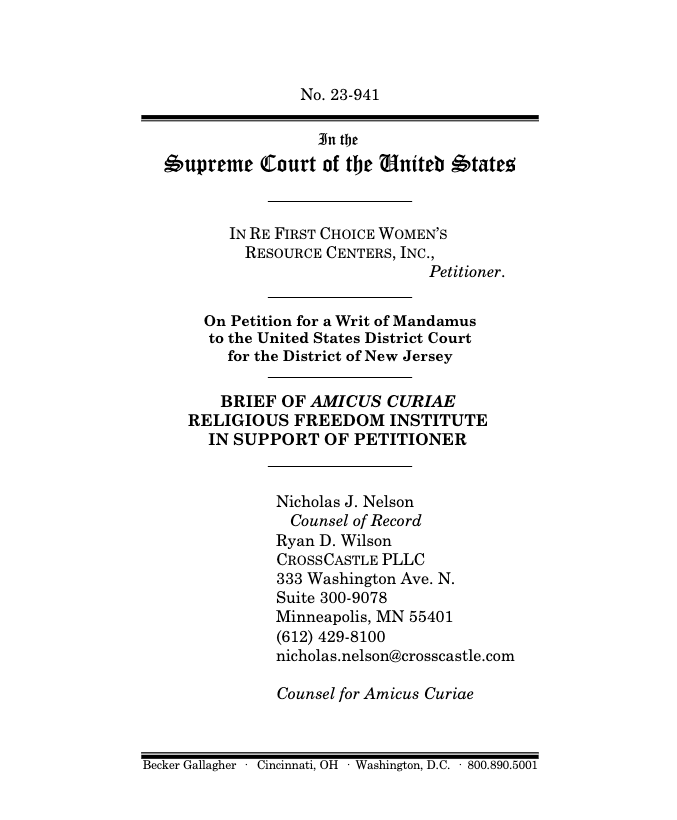
Summary of facts: In coordination with Planned Parenthood, New Jersey’s attorney general served an investigatory subpoena on First Choice Women’s Resource Centers, Inc., a faith-based pro-life pregnancy center, demanding information about its donors, personnel, and relationships. Invoking 42 U.S.C. 1983, a statute that grants federal courts jurisdiction over constitutional claims against state actors, First Choice asked a federal district court to issue a restraining order. The court dismissed the case for lack of jurisdiction, holding that a challenge to a state investigatory demand is not ripe unless a state court first orders the target of the subpoena to comply. When the US Court of Appeals for the Third Circuit affirmed the dismissal, First Choice filed a petition for mandamus with the US Supreme Court, asking it to direct the district court to accept jurisdiction and decide the motion for a restraining order.
RFI’s position: When citizens claim that state officials are violating their constitutional rights, 42 U.S.C. 1983 gives them the choice of bringing that claim in federal courts, rather than in the courts of the same state whose officials are allegedly violating their rights. This case raises concerns related to the Constitution’s protections for free speech, freedom of association, and the free exercise of religion. Simply being served with an investigative subpoena of this type creates a significant potential chilling effect on those rights and therefore gives the target of the subpoena standing to challenge its constitutionality. The decisions by the federal district and appellate courts in this case would eliminate any federal forum for that challenge and thus contradict the central promise of Section 1983.
Read the amicus brief here.
THE RFI BLOG

Does Southeast Asia Lead the World in Human Flourishing?

RFI Leads Training Session on Religious Freedom Law and Policy for U.S. Army War College

Oral Argument in Charter School Case Highlights Unconstitutional Motives Behind OK Attorney General’s Establishment Clause Claim

Largest Longitudinal Study of Human Flourishing Ever Shows Religion’s Importance

Keys To Human Flourishing: Faith And Relationships Outweigh Wealth
CORNERSTONE FORUM

Reaffirming Religious Freedom: Bridging U.S. Advocacy and Iraq’s Constitutional Framework

Political Polarization, Same-Sex Marriage and Religious Liberty

Bridging the Gap Between International Efforts and Local Realities: Advancing Religious Freedom in the MENA Region

Challenges to Religious Freedom in Iraq and the Critical Need for Action

